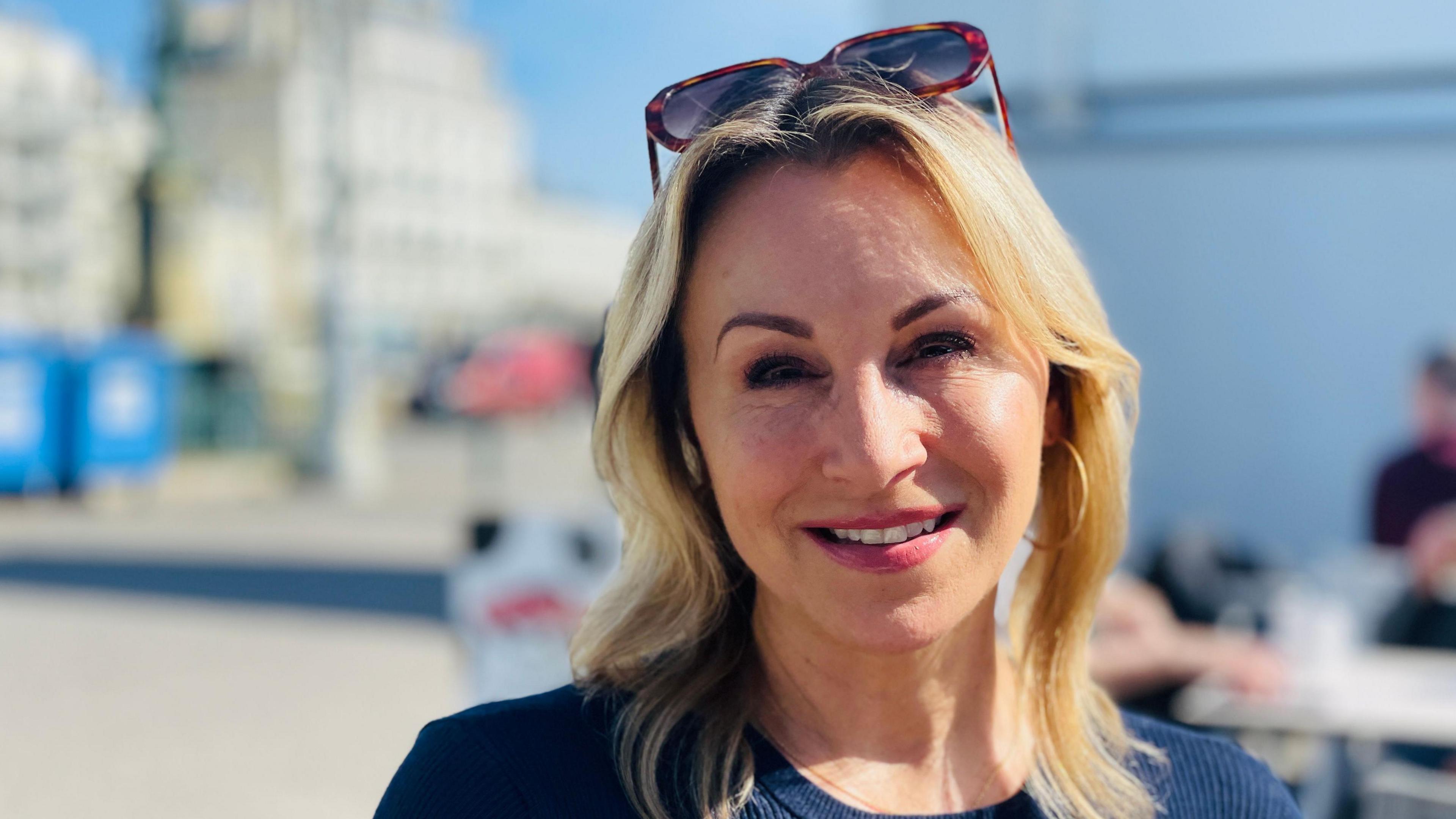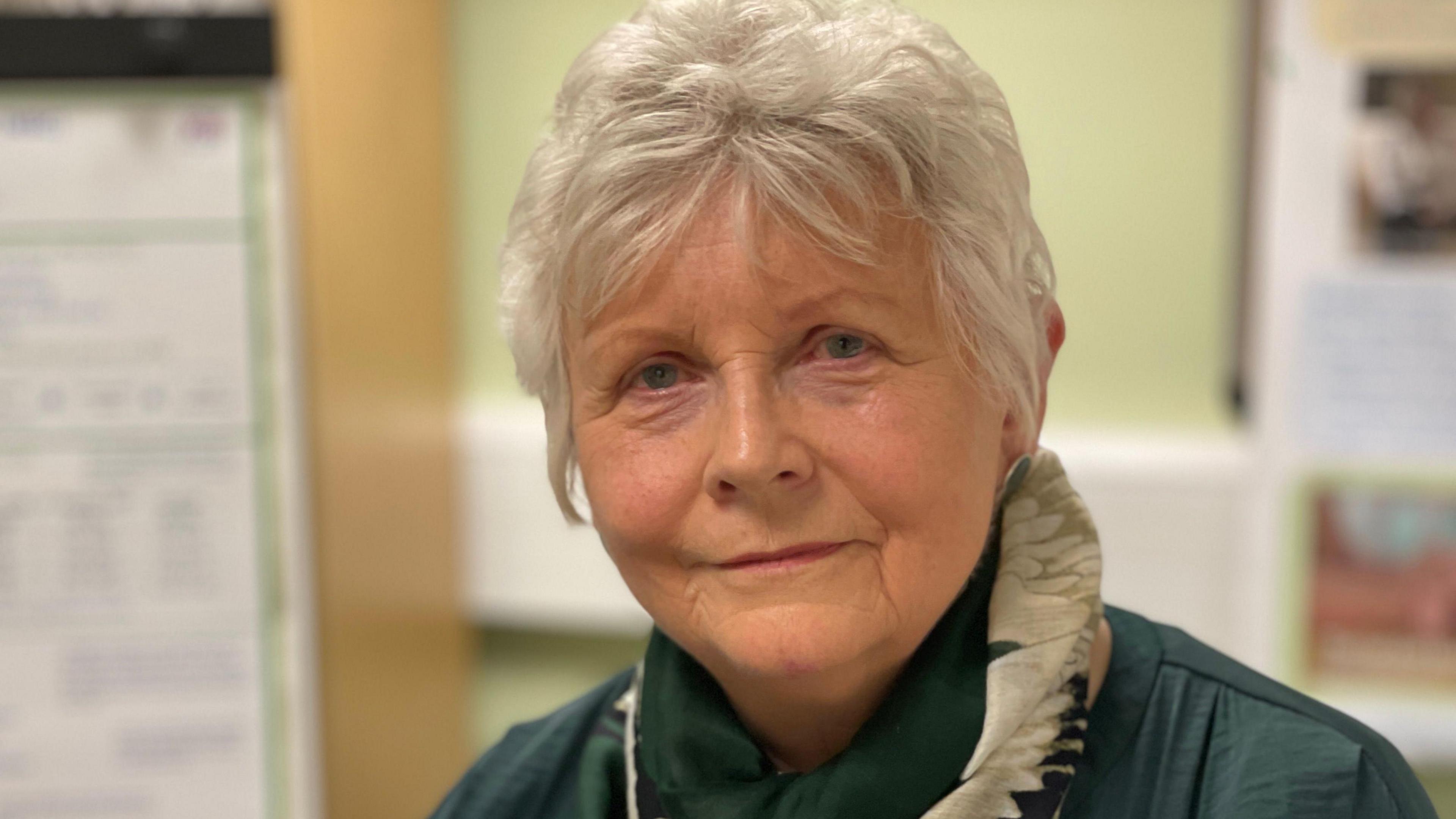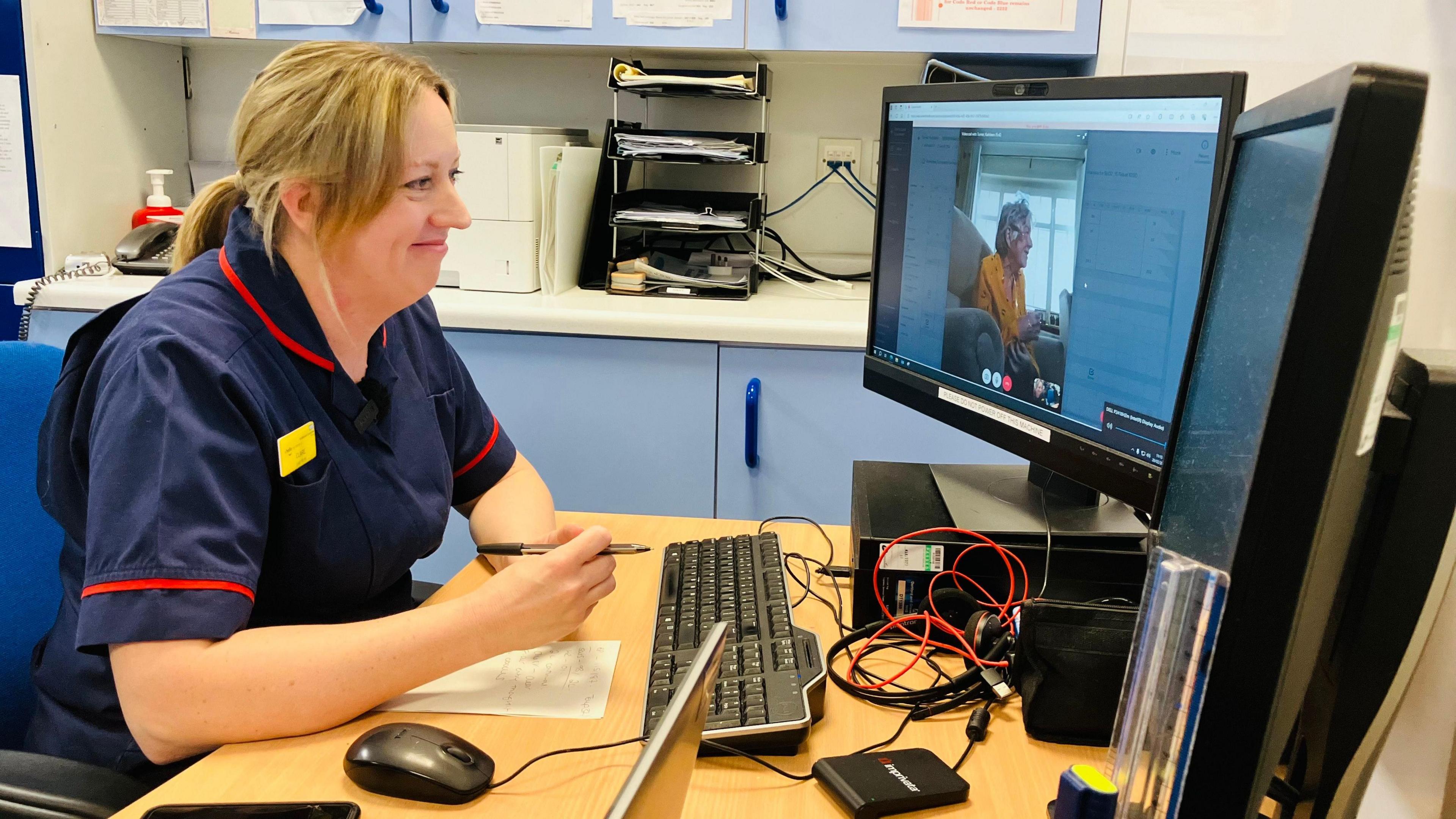Calls for more secondary breast cancer research

Sophie Blake was given three years to live after a secondary breast cancer diagnosis
- Published
A Sussex mother is calling for more research into secondary breast cancer after being given just three years to live.
Sophie Blake, 51, from Brighton, was told in May 2022 her breast cancer had spread to her "lungs, liver and pelvic bone".
Secondary breast cancer can be treated, but it cannot be cured.
Make 2nds Count, a charity dedicated to giving hope to people living with secondary breast cancer, believes secondary breast cancer research has been "underfunded for a very long time".
Secondary breast cancer kills on average 1,000 people every month in the UK.
It is the leading cause of death for females aged 35 to 49 in England and Wales.
Secondary breast cancer - also known as metastatic breast cancer - occurs when breast cancer cells spread from the breast through the lymphatic or blood system to other parts of the body such as bone, liver and skin.
It's estimated that in England , external in 2020-2021 more than 57,000 patients were living with metastatic breast cancer.
Ms Blake, a former sports presenter, said it was disappointing how this diagnosis was treated in the UK.
She said patients should work together to "raise awareness and fight for the drugs and the medication for all of us".
Last year the National Institute for Health and Care Excellence (NICE) rejected the use of a drug called trastuzumab deruxtecan to treat certain types of secondary breast cancer.
It is estimated that around 1,000 people would be eligible for treatment with trastuzumab deruxtecan.
Dr Sarah Thomas, research manager at Make 2nds Count, said patients diagnosed with secondary breast cancer have been "overlooked".
She said that 35% of patients diagnosed with primary breast cancer "go on to develop secondary breast cancer" and that less than 10% of research funds are spent on secondary breast cancer.

Professor Dame Lesley Fallowfield specialises in how patients deal psychologically with a cancer diagnosis
A recent survey conducted by Sussex Health Outcomes Research & Education at the Brighton and Sussex Medical School (BSMS) found "disturbing gaps in communication, information and fairly basic support for patients with secondary (metastatic) breast cancer".
The report's authors said the gaps "must be addressed" if patients are to benefit from new, more effective treatments that might become available.
Dame Lesley Fallowfield, professor of psycho-oncology at BSMS, said "people really need help and it's not always there for them".
Follow BBC Sussex on Facebook, external, on X, external, and on Instagram, external. Send your story ideas to southeasttoday@bbc.co.uk, external or WhatsApp us on 08081 002250.
Related topics
Related stories
- Published20 March 2024

- Published11 March 2024
